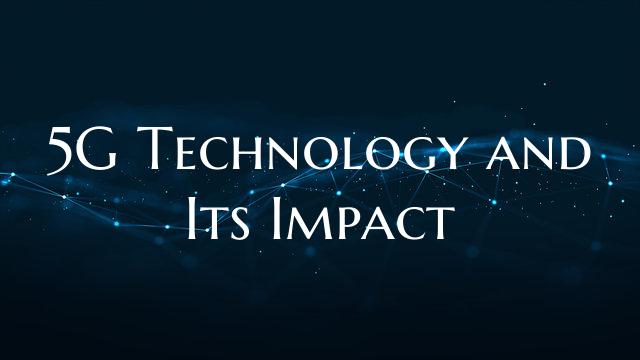5G Technology and Its Impact
In today's digital age, 5G technology has emerged as a game-changer, promising to revolutionize the way we connect, communicate, and interact with the world around us. As the next generation of mobile connectivity, 5G is not just an incremental improvement over its predecessors; it represents a monumental leap forward in terms of speed, capacity, and latency. This transformative technology is set to redefine the way we live, work, and play, with far-reaching implications across various industries and sectors.
One of the most significant impacts of 5G technology lies in its potential to enable a truly connected world. With speeds that are up to 100 times faster than 4G, 5G networks will facilitate seamless communication between devices, paving the way for the Internet of Things (IoT) to reach its full potential. From smart homes and smart cities to autonomous vehicles and industrial automation, the possibilities are endless when every device and sensor is interconnected through ultra-fast, low-latency 5G networks.
Moreover, the widespread adoption of 5G is expected to fuel innovation and drive economic growth. By providing the infrastructure for cutting-edge technologies such as virtual reality, augmented reality, and artificial intelligence to flourish, 5G will create new opportunities for businesses to deliver immersive experiences, enhance productivity, and unlock new revenue streams. Industries ranging from healthcare and education to manufacturing and entertainment stand to benefit from the enhanced capabilities and efficiency that 5G technology offers.
On a societal level, 5G technology has the potential to bridge the digital divide and promote inclusivity. By extending high-speed connectivity to underserved areas and remote communities, 5G can help reduce disparities in access to information and resources, empowering individuals to participate in the digital economy and access essential services. Additionally, the deployment of 5G networks can enhance emergency response and public safety efforts, enabling faster communication and more reliable connectivity during crises and natural disasters.
While the promise of 5G technology is undeniably exciting, it also raises important considerations around security, privacy, and ethical use. As the volume of data transmitted over 5G networks increases exponentially, ensuring the security and integrity of these networks becomes paramount to safeguarding sensitive information and maintaining public trust. It is crucial for stakeholders to address these challenges proactively and implement robust measures to protect data privacy and prevent cybersecurity threats in the era of 5G.
In conclusion, 5G technology has the potential to redefine the way we live, work, and communicate in a hyper-connected world. As we stand on the brink of this technological revolution, it is imperative for policymakers, industry leaders, and the broader society to collaborate and harness the transformative power of 5G responsibly. By embracing innovation, addressing challenges, and leveraging the full capabilities of 5G technology, we can unlock a future where connectivity knows no bounds and possibilities are limitless.

